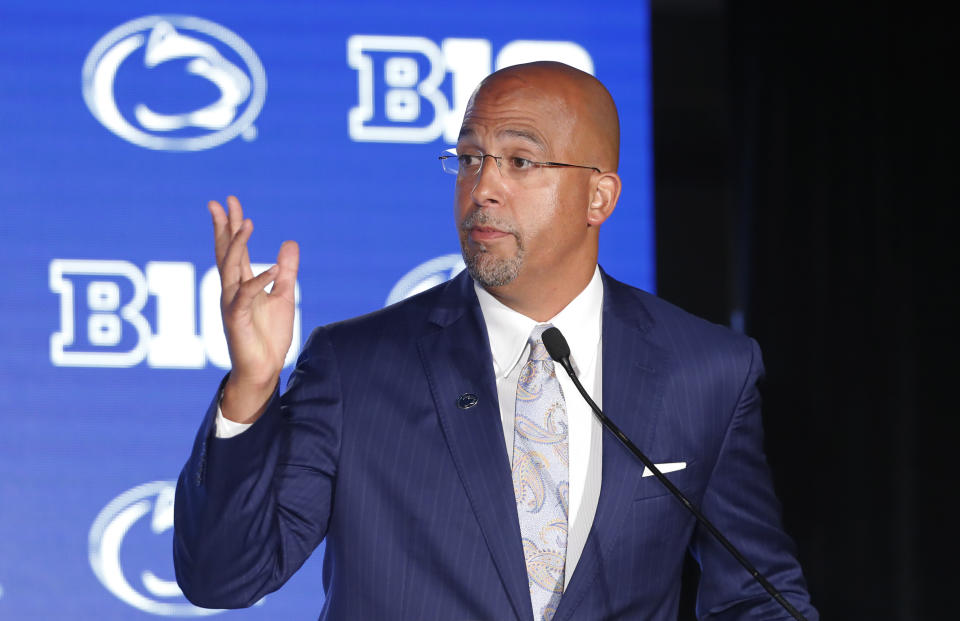Former Penn State team doctor accuses James Franklin of pressuring him to clear injured players
A former Penn State team doctor is accusing PSU head coach James Franklin of pressuring him to medically clear injured players.
Dr. Scott A. Lynch, who was removed as the football team’s orthopedic surgeon and director of athletic medicine in March, filed a lawsuit against the university, which also names Franklin as a defendant.
In his role as a team doctor, it was Lynch’s job to determine how student-athletes should be treated for injuries and how soon they can return. The position was supposed to have autonomy from the coaching staff, but that’s not how Lynch paints the picture.
“Defendant James Franklin created a culture and climate which, at a minimum, obstructed full compliance with the aforementioned standards and rules implemented to safeguard the medical management of student athletes.
“On multiple and repeated occasions, defendant James Franklin attempted to interfere with the plaintiff's autonomous authority to determine medical management and return-to-play decisions related to student athletes.”
Lynch contends that he was removed from his positions because of his status as a whistleblower. He is seeking more than $50,000 as well as interest, costs and damages. Pennsylvania has a whistleblower law that is supposed to protect people like Lynch from retaliation in this scenario.
Lynch reported Franklin to the people who later fired him
In the lawsuit, Lynch states that he did not let Franklin’s attempts to pressure him affect his decisions but still took those actions — none of which were named specifically in the lawsuit — to heart.
Lynch says that he reported Franklin’s behavior to at least four different sources. Those sources included athletic director Sandy Barbour, senior associate athletic director Charmelle Green, athletic integrity officer Robert Borland and Dr. Kevin P. Black, the school’s chair orthopedics and rehabilitation.
[Join or create a 2019 Yahoo College Fantasy Football league for free today]
Lynch alleges in the lawsuit that Borland and Green “demanded” that Black fire Lynch because he had called out Franklin and the school wanted to avoid scandal.
The lawsuit also states that Lynch met with Borland on Feb. 21 to talk about Franklin’s alleged attempted interference, where Lynch recommended the school add positions to make sure no coaches had undue influence and make sure team doctors had more autonomy. Borland declined to implement those changes, the lawsuit says.

Penn State Health responds to Lynch’s lawsuit
Penn State has its own explanation for why Lynch was replaced at his two positions overseeing student-athletes' health. Primarily, school officials said they wanted the team orthopedist to be based in State College, while Lynch is based two hours away in Hershey.
Lynch was replaced by Wayne Sebastianelli, who served as the team doctor and director of athletic medicine for 20 years before Lynch held the positions.
After the lawsuit was made public, Penn State Health released a statement refuting the charges that Lynch was fired because of his whistleblower status:
“In February 2019, Penn State Health administrators decided to change leadership for athletic medicine and the delivery of care for Intercollegiate Athletics. This transition was completed with the best interests of student-athletes in mind, given the increasing complexity and growing demands of sports medicine, as well as health care in general.
“While we reject Dr. Lynch’s claims and will vigorously defend our program and its representatives, we remain grateful to him for his five years as director of athletic medicine for Intercollegiate Athletics and for his continued association with Penn State Health.”
More from Yahoo Sports:

